How much does car maintenance cost?

Aivaras Grigelevičius
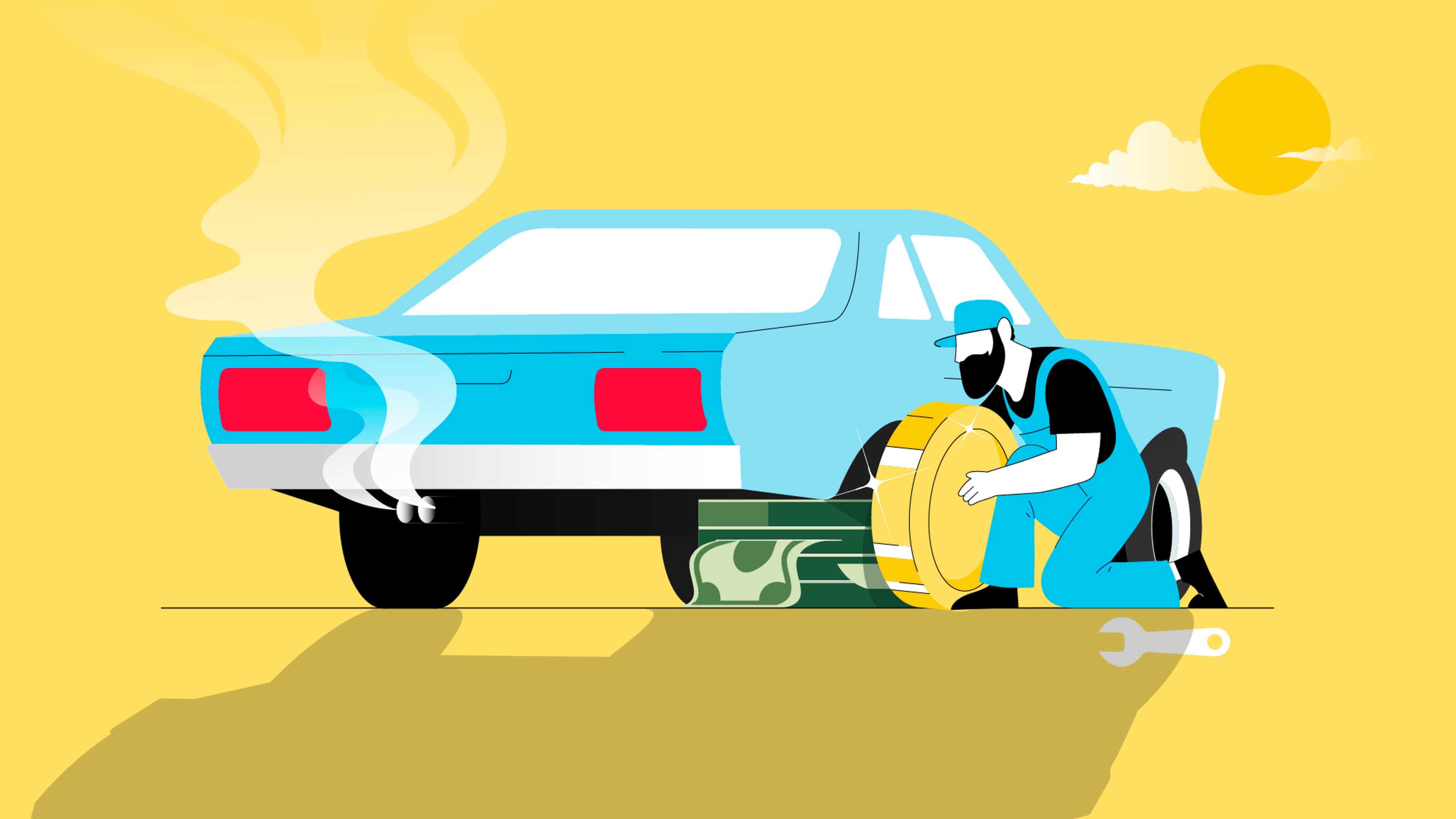
Finding the vehicle you want at a reasonable price is exciting. However, car buyers should remember that the cost of buying a vehicle is one thing – maintaining it can be a whole different deal.
We’ve put together a helpful guide that will give you a better idea of how much car maintenance costs, so you can make smarter decisions in the marketplace.

Looking for a reliable car?
A well-maintained and undamaged car is the most reliable! Check any VIN code to make sure you're not buying a wreck:
Costs of car maintenance vary due to many factors
Car makers are working to optimize production by utilizing identical components across multiple models. This strategy contributes to lower maintenance costs, but this doesn’t guarantee that servicing vehicles like the Toyota Corolla and the Toyota RAV4 will cost the same.
A significant factor in maintenance cost is weight. For example, since the Toyota RAV4 is heavier, it will use more fuel and require more frequent tire changes. Therefore, the difference in maintenance cost between the 2 cars will be quite significant in the long run.
Unexpected repairs could cost more
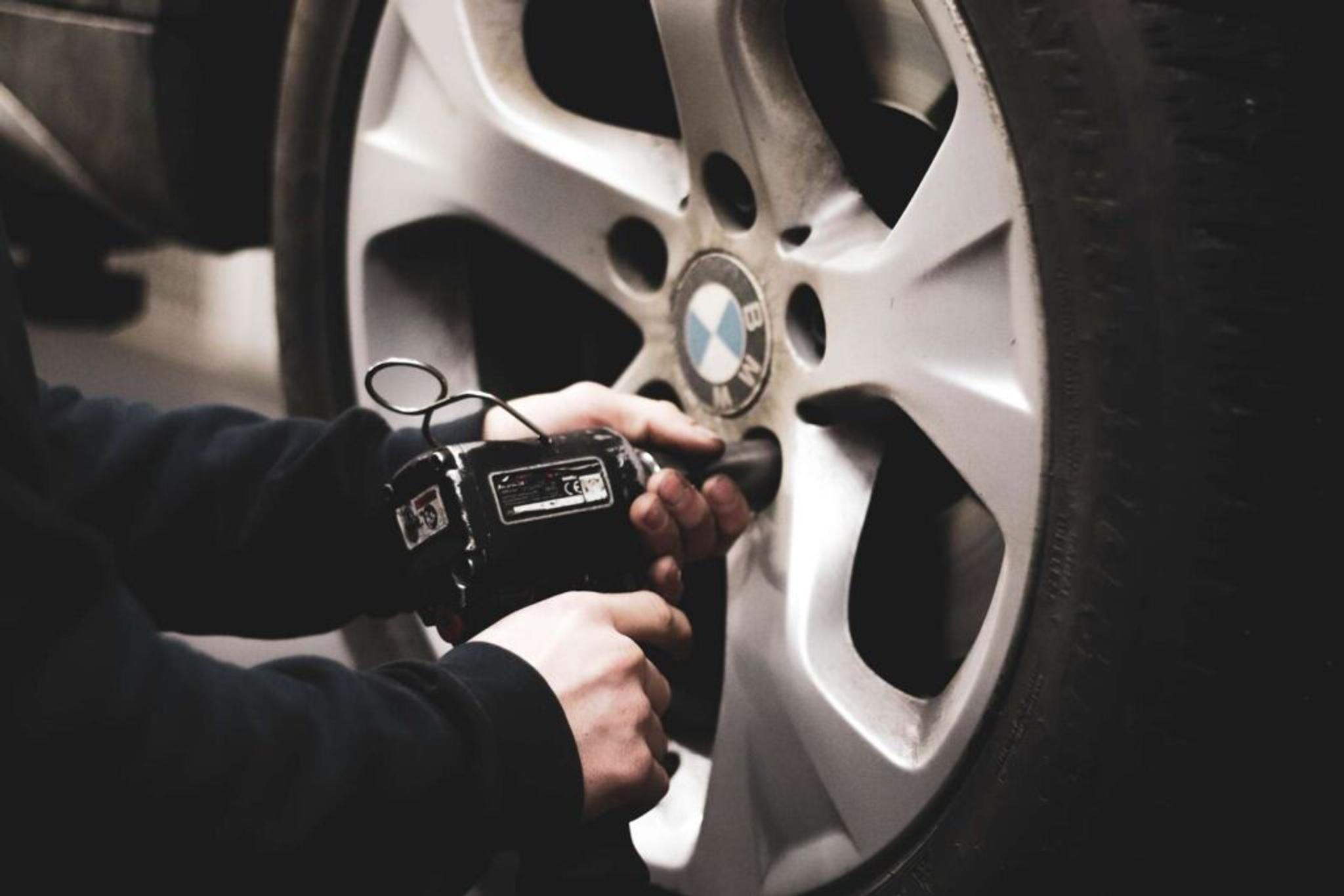
All vehicles require routine maintenance. Even the most reliable car in the world can only reach a high mileage because of regular scheduled maintenance, which helps reduce the risk of unexpected breakdowns.
Regular car maintenance demands a considerable portion of your income. However, any attempt to save money at the expense of servicing critical vehicle components may result in various breakdowns:
- Skipped oil changes may lead to engine replacement or overhaul.
- Ignoring any issues with struts, shocks, tie rods, ball joints, or other suspension parts will lead to increased tire wear and more.
- Not paying attention to possible leaks could lead to expensive engine, transmission, or cooling system repairs.
Cost of car maintenance depends on the car brand
Vehicles with complicated electrical systems and other technological intricacies have more things that can break down, and are therefore more expensive to maintain.
Certain car brands are known for building more technologically-advanced vehicles, which is one of the main reasons maintenance costs will vary by brand.
The most expensive car brands to maintain (maintenance cost over 10 years of ownership)
1.RAM – $16,802
2.Jeep - $11,476
3.Chrysler - $11,364
4.Dodge - $11,079
5.Ford - $9,860
6.Chevrolet - $9,625
7.Fiat - $9,100
8.Buick - $9,063
The cheapest car brands to maintain (maintenance cost over 10 years of ownership)
1.Toyota - $5,996
2.Mitsubishi - $7,787
3.Honda - $7,827
4.Mazda - $8,035
5.Nissan - $8,088
6.Mini - $8,155
7.Volkswagen - $8,166
8.GMC - $8,429
Routine car maintenance costs
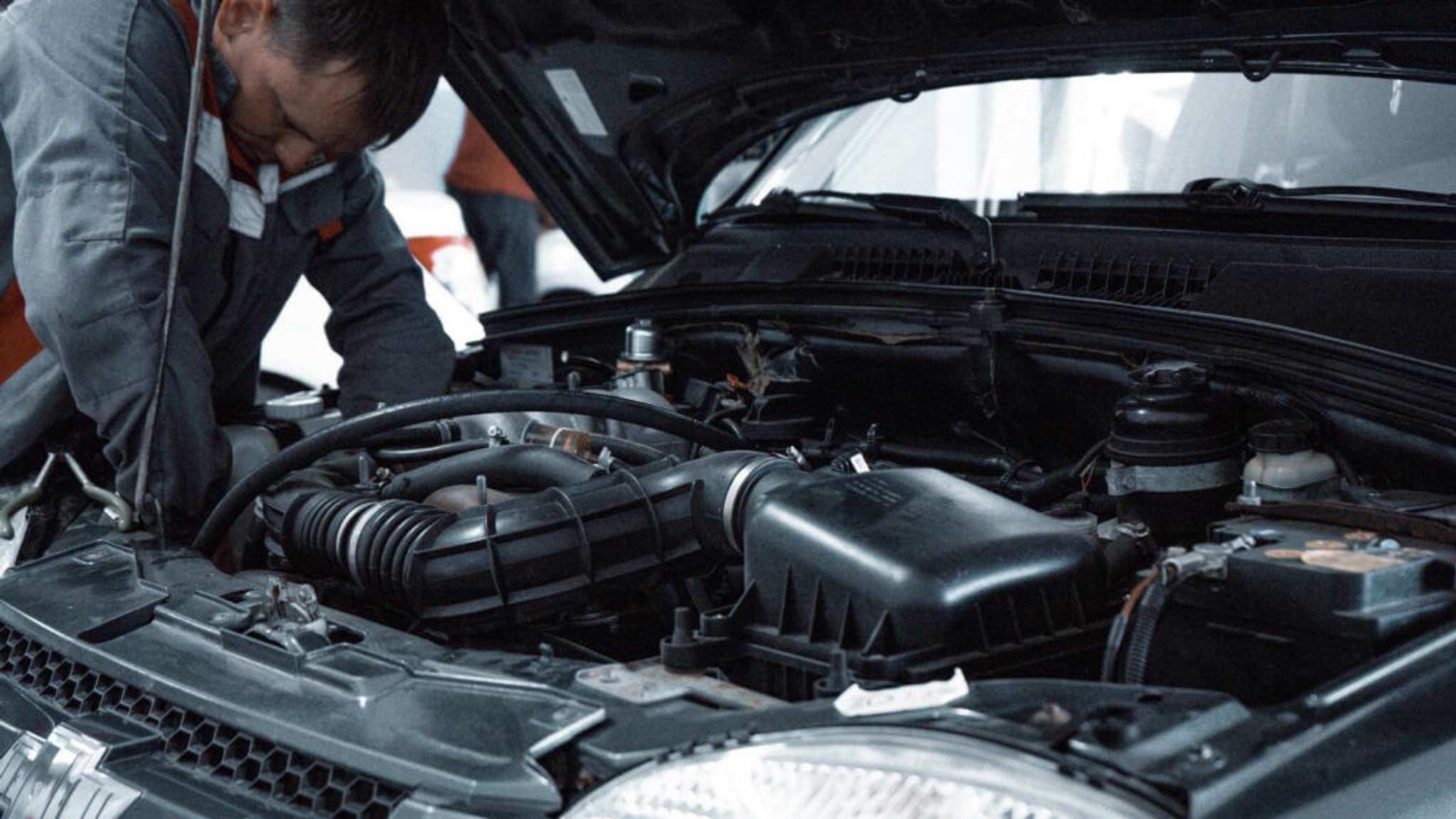
Maintenance schedule guidelines are meant to assist you with timely oil changes and other routine car maintenance to avoid unexpected breakdowns and expensive repairs.
Car maintenance cost example
A car's maintenance cost varies depending on its make, model, and where you have your vehicle serviced. For a better understanding of the potential costs, here's an example of the scheduled maintenance costs for the Toyota RAV4 SUV.
5,000 miles (8,000 km) mark:
- Oil change – $80 to $140
- Tire rotation – from $30
10,000 miles (16,000 km) mark:
- Oil change – $80 to $140
- Regular inspection of fluids, wiper blades, brake system – from $60
- Tire rotation – from $30
- Engine and cabin air filter change – $50 to $100
15,000 miles (24,000 km) mark:
- Oil change – $80 to $140
- Tire rotation – from $30
- Suspension, steering gear, exhaust check-up – from $70
20,000 miles (32,000 km) mark:
- Oil change – $80 to $140
- Brake fluid change – $120 to $180
- Tire rotation – from $30
- Engine and cabin air filter change – $40 to $100
25,000 miles (40,000 km) mark:
- Oil change – $80 to $140
- Tire rotation – from $30
- Suspension, steering gear, exhaust check-up – from $70
30,000 miles (48,000 km) mark:
- Oil change – $80 to $140
- Spark plugs change – $120 to $190
- Brake pads change – $110 to $270 per axle
- Tire rotation – from $30
- Engine and cabin air filter change – $40 to $100
Cost of rotation or replacement of tires
New tires can be a costly purchase, especially if you drive a truck or SUV. However, there is a way to reduce the average tire maintenance costs. Average miles driven per year should also be taken into consideration here.
By rotating a vehicle's front and rear tires, you prolong their life, reducing costs. Leading tire manufacturers like Michelin recommended rotating tires every 6 months or 6,000 to 8,000 miles (10,000-13,000 km).
Another thing you can do is choose tires with a smaller diameter. For example, Honda recommends using 3 tire sizes for their Civic: 215/55 R16, 215/50 R17, and 235/40 R18. While the R18 diameter tire gives cars a more aggressive stance, it's more expensive to buy and own due to decreased fuel efficiency. If you genuinely want to save money on tire maintenance, purchase low-rolling-resistance tires that will improve fuel efficiency by 3 to 5%.
Oil change price
Typically an oil change isn’t expensive, but depending on several factors, the cost may vary:
- Whether you're doing it yourself or employing a mechanic
- The type of oil used
- Quantity of oil
- The vehicle's make and model
- Engine type and displacement
Brake maintenance costs
Brake pads are the most often replaced part in a vehicle's braking system. They could wear out in 12 months or just a few years, depending on your driving style. However, you should also regularly check and replace other parts in the brake system:
- Brake calipers
- ABS control module
- Disc brakes
- Master cylinder
- Wheel speed sensor
- Brake booster
Other car maintenance costs
Although tire rotation and oil changes are some of the most important areas of car maintenance, it's important to keep in mind the other parts that will require relatively frequent replacement:
- The car battery
- Worn-out windshield wipers
- Burned out light bulbs
Other car ownership costs
Keeping a car in good shape costs a lot of money. However, there's also a constant flow of other expenses:
- Insurance costs
- Parking fees
- Fuel costs
- Window washing fluid, motor oil, etc.
Since car maintenance costs depend on various factors, maintaining scheduled service intervals is crucial. This way, you will reduce the risk of vehicle breakdowns and keep a high resale value.
Potential cost of buying a poorly maintained vehicle
The mileage of a vehicle tends to serve as the reference point for helping to determine its maintenance requirements. When buyers encounter the same model with mileage readings of 30,000 and 80,000 on the clock, they will naturally lean towards the car with the lower mileage, even if it comes at a slightly higher cost.
However, these differences in mileage can be misleading. A vehicle with low mileage, along with nearly perfect service book records and an enticing price, can often signal hidden faults within.
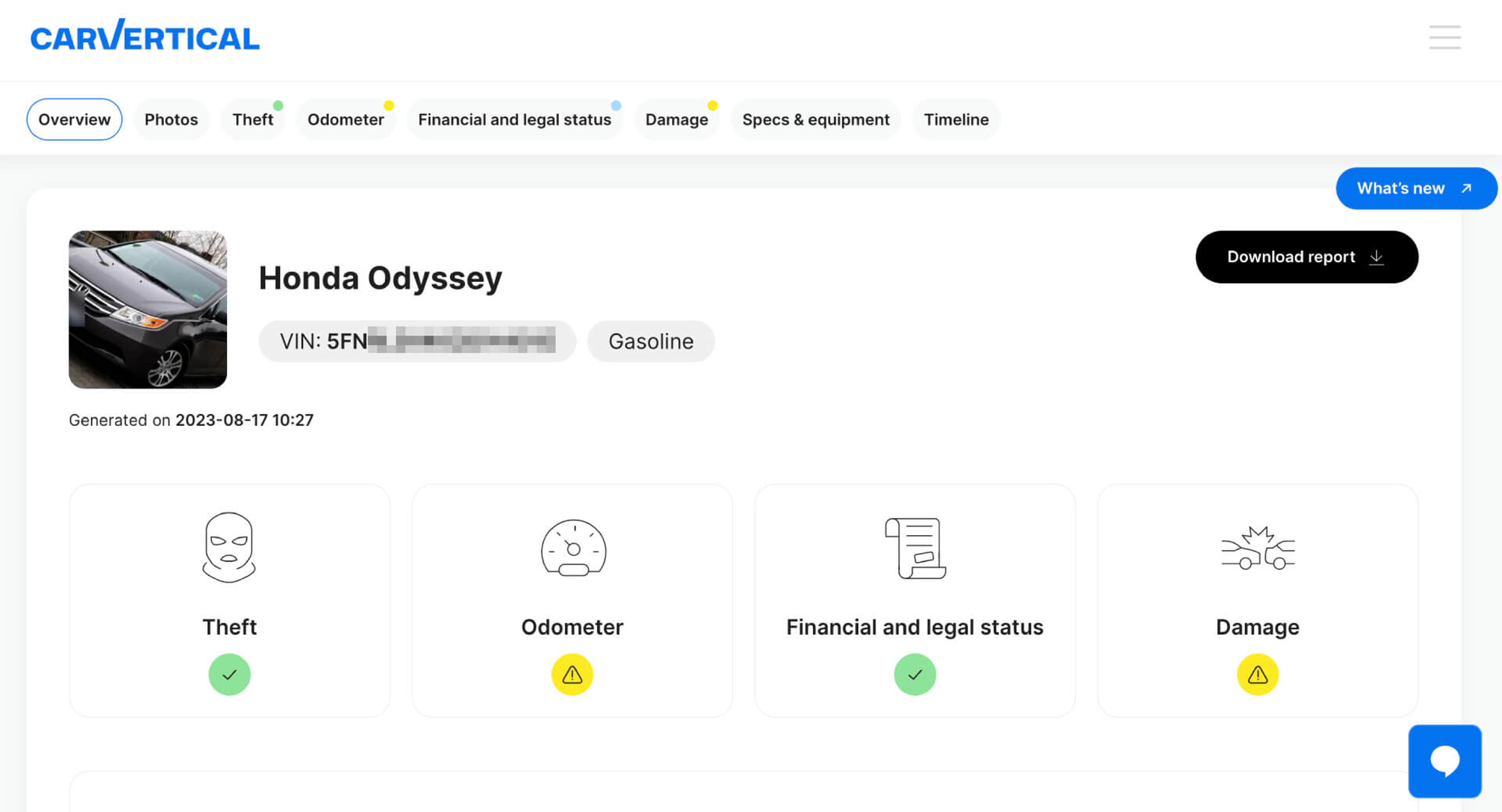
Mileage and service book records are frequently manipulated by unscrupulous sellers who aim to conceal noticeable defects and present the vehicle as flawless.
Unfortunately, many car buyers remain unaware that they are on the brink of acquiring a poorly maintained vehicle, which will require a substantial upfront investment. Unless buyers take the initiative to decode the VIN number of the car they're interested in.
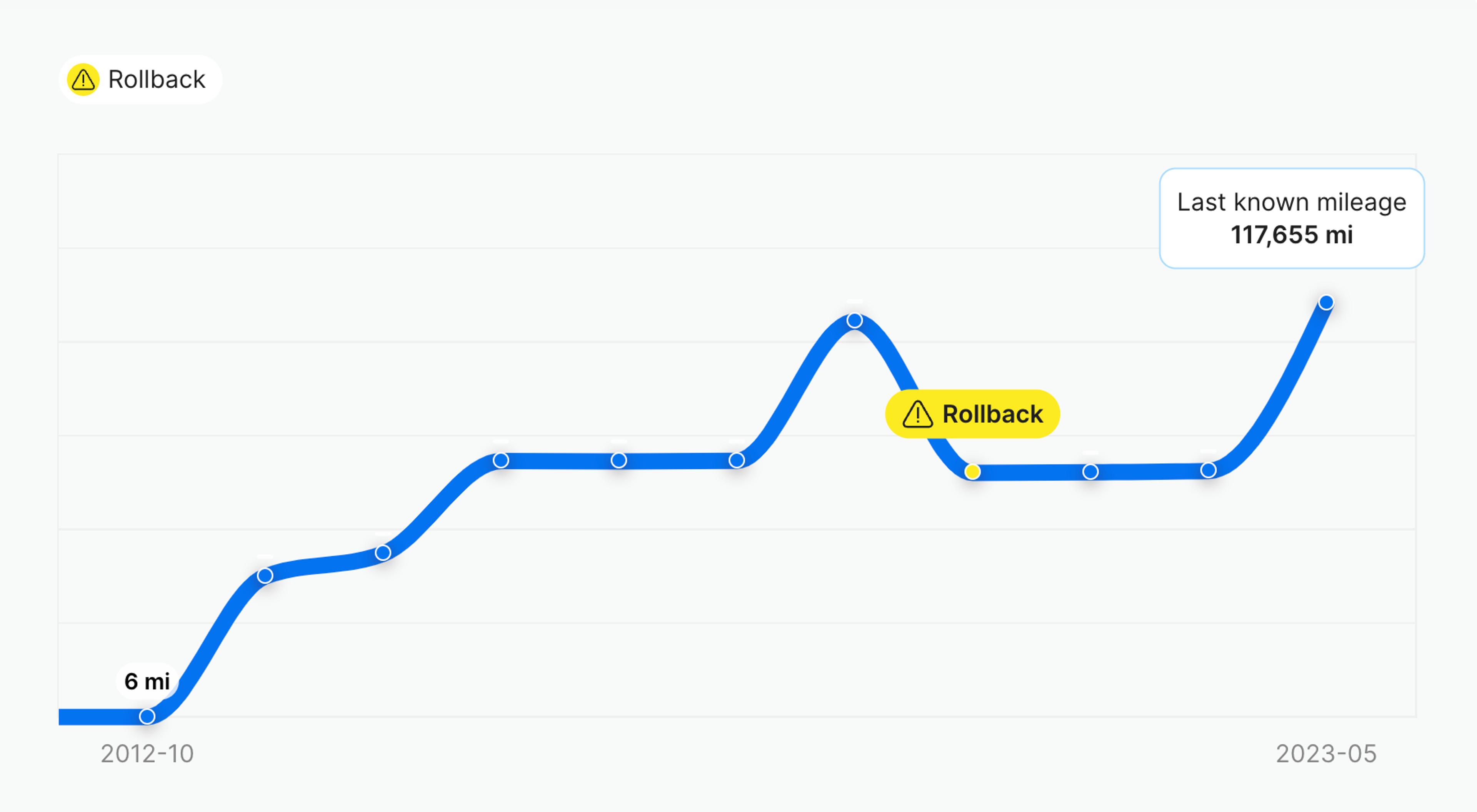
By doing so, potential buyers can confidently evaluate the actual condition of the vehicle, mitigate the risk of purchasing a problematic vehicle, and avoid the subsequent regret that often accompanies the acquisition of a vehicle plagued by recurring issues.

Check your VIN
Avoid costly problems by checking a vehicle's history. Get a report instantly!
Frequently asked questions

Article by
Aivaras Grigelevičius
Aivaras has been excited about cars since he was a little kid. Later, this passion for drivable objects (and everything that surrounds them) grew into work as an automotive journalist. Since then, Aivaras has written for several different magazines, covering anything with an accelerator pedal. He has a soft spot for cars with an Alfa Romeo badge.
